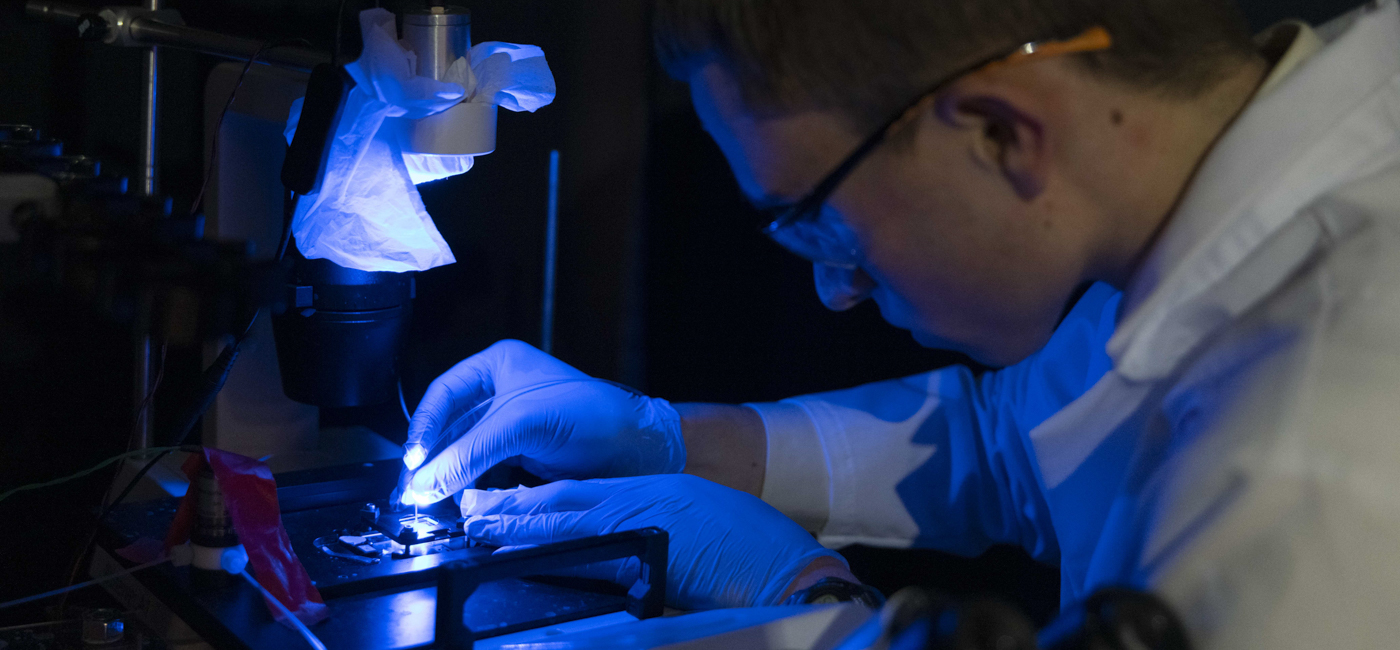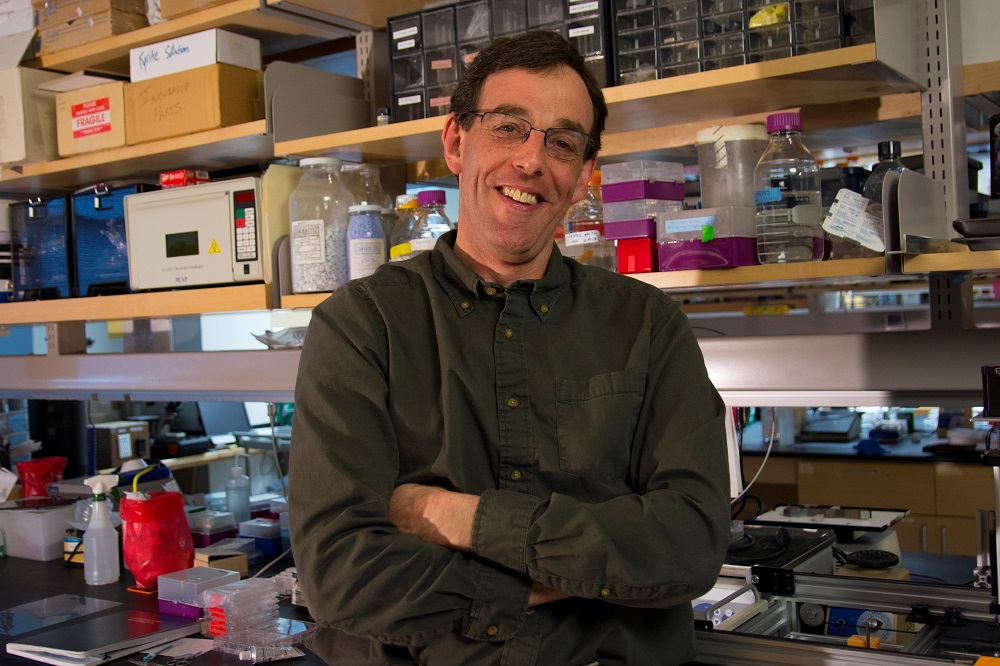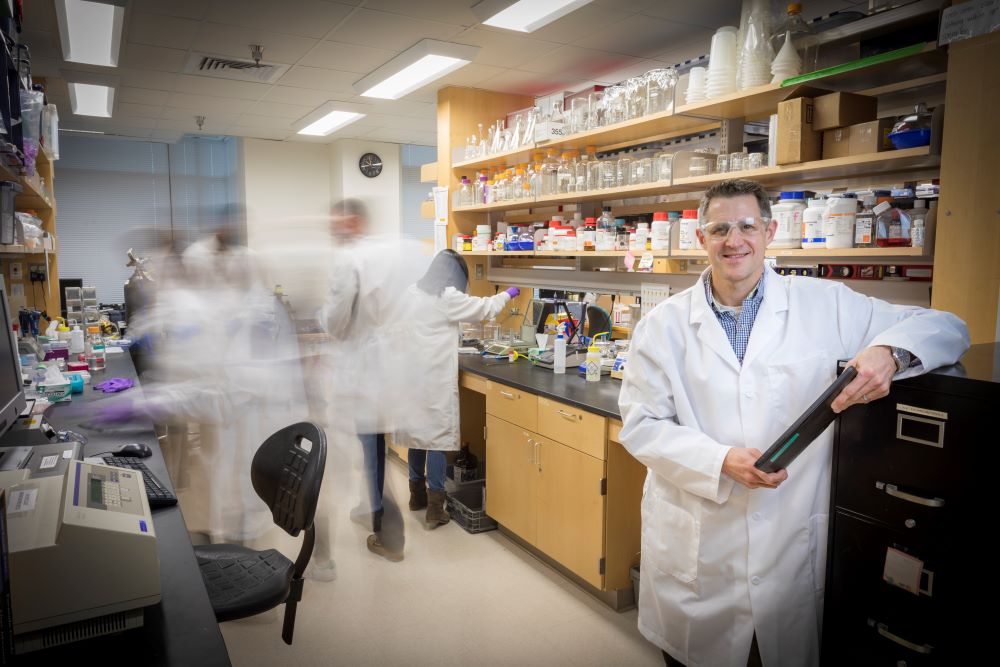Two WPI biomedical engineering professors are the recipients of a $1.94 million, five-year grant to study the use of biological sutures for delivering cells to infarcted (dead) tissue in the heart for cardiac repair. Glenn Gaudette, who will lead the team, and George Pins, along with Michael Laflamme of the University of Washington, received the grant from the National Institutes of Health (NIH).
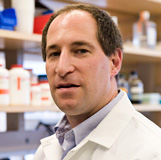 According to Gaudette, one of the goals of the project is to help bring cell therapy closer to becoming a viable treatment for many Americans. Cell therapy involves using human stem cells to treat diseases. Gaudette’s team also hopes to improve the cells’ healing power with their approach.
According to Gaudette, one of the goals of the project is to help bring cell therapy closer to becoming a viable treatment for many Americans. Cell therapy involves using human stem cells to treat diseases. Gaudette’s team also hopes to improve the cells’ healing power with their approach.
“One of the limitations of current methods used for cell therapy is that most of the cells do not stay where they are supposed to,” he says. “Our work with biological sutures has demonstrated that we can significantly improve cell delivery with this method.”
Gaudette explains that his team is planning to not only develop a more efficient method for delivering cells to the damaged heart, but restore mechanical function to it. He adds that cell therapy has the potential to address a wide range of medical needs.
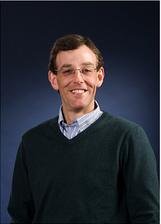 “If we can figure this out and deliver the cells to the correct location, we may be able to treat many different types of disease, from heart disease to skeletal muscle disease to neurological disease.”
“If we can figure this out and deliver the cells to the correct location, we may be able to treat many different types of disease, from heart disease to skeletal muscle disease to neurological disease.”
For Gaudette, the challenge is not so much studying what cell therapy can accomplish, it’s more about how to extract the particular cells that will be needed.
“We all started from a single cell, and then many different cells―for example, muscle cells, skin cells, bone cells, blood cells, et cetera―came from that single cell. Thus, we know that multiple types of cells can be generated from a stem cell; the problem is how to get these cells from stem cells,” he explains.
Securing an NIH grant is no easy task, Gaudette says. He describes it as being a very competitive process in which experts from across the nation convene to review and score submitted grant proposals. “Only the top few grants from the review process get funded,” he notes.
Laflamme, who is a cardiovascular pathologist and an expert in stem cell biology, will provide some of the adult stem cells that will be used for the project. The grant money will be spread over five years and will be used to pay for supplies, graduate students, publications, and other expenses directly related to the research project, according to Gaudette.
― Mike D’Onofrio
